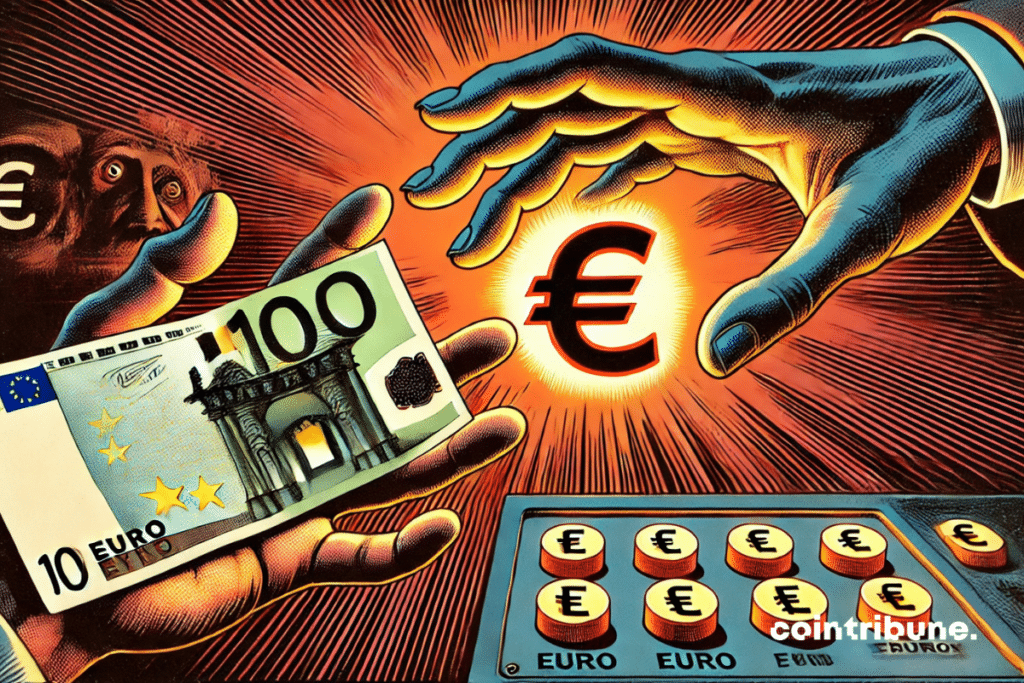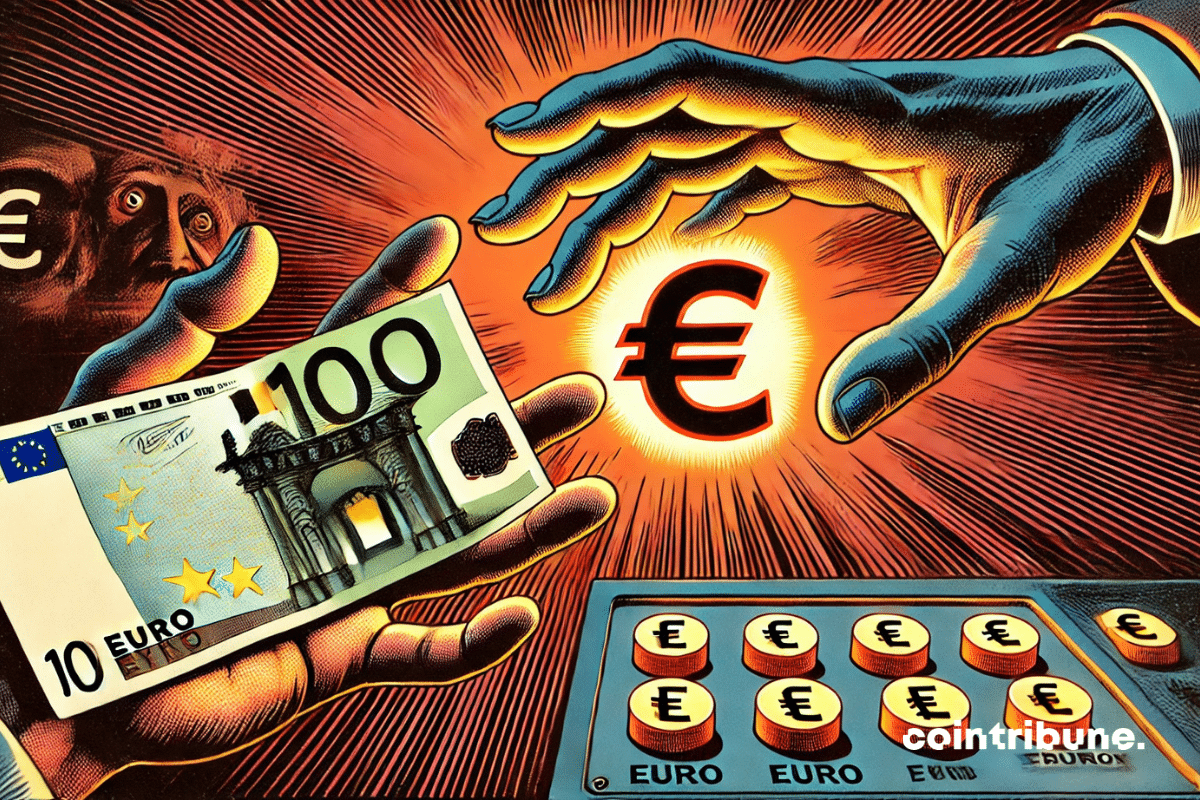11:00 ▪ ▪
5
min at reading ▪
Christine Lagarde confirmed the planned launch of the digital euro for October 2025, subject to the approval of European bodies. This initiative is part of the context, where a recent investigation reveals a significant lack of interest in Europeans for this currency of the digital central bank.

Accelerated initiative despite the lack of citizens of citizens
The ECB officially announced its intention to launch the digital Euro in October 2025. This project is conditional on the approval of the main European parties (European Commission, Parliament and Council), but does not provide direct consultation of European citizens, even though they first deal with this monetary revolution.
This acceleration comes in a particular context. However, the recent investigation of the ECB with 19,000 Europeans in 11 countries reveals an obvious lack of interest in this digital currency. Most respondents believe that the current means of payment already meet their daily needs and do not see the usefulness of a new cash tool.
ECB, which faces this unwillingness, develops targeted communication strategies. According to the conclusions of the study, ” Consumers to present a short video, clearly explaining the characteristics of the digital euro is much more likely to adjust their beliefs This explains a significant increase in video content produced by institutions since the end of 2024.
Real challenges for digital euro
The official ECB motivation for this project is multiple. Christine Lagarde’s main argument is to reduce European dependence on foreign payment solutions such as Google Pay or Apple Pay. However, the analysis of geopolitical context suggests further concerns.
One of the main questions would be the European reaction to the growing acceptance of cryptocurrencies and Stablecoins in the United States, especially because President Donald Trump signed a executive decree prohibiting the US MNBC in January 2025 and his aim was to make the United States “world capital”. Piero Cipollone, member of the Board of Directors of BCE, also explicitly said: “ That’s why we need a digital euro. »»
In addition, this project is part of a particular economic context where the European Union seeks to mobilize important financial resources. Ursula von der Leyen recently launched the “Restmer Europe” initiative, which required funding estimated at EUR 800 billion, as well as the “Union of Savings and Investments”, aimed at a redirecting of EUR 10,000 billion “unused savings” of European citizens.
Unlike the decentralized cryptos, the digital euro would allow centralized control with potential programmability, geolocation or even the expiration of funds. However, Christine Lagarde insists that it would simply be a “form of fiducial currency”, a presentation that could facilitate its acceptance by the public.
Toward discreet but inevitable integration
Despite the current lack of interest of European citizens, everything suggests that the ECB will continue to develop the digital euro. The Chinese E-CNY experience could serve as a model: After difficult beginnings, this MNBC now has 180 million users and a cumulative volume of transactions of $ 1,000 billion.
The likely strategy will gradually integrate the digital euro into existing applications and means of payment. This approach would allow generalized adoption without required to direct user enthusiasm.
In addition to the development of this retail MNBC designed for individuals, the EU also experiences a “large” version based on the technology of distributed registers (DLT) for the interconnection of financial institutions. These exams have already included 64 participants and more than 50 experience from May to November 2024.
In the face of this monetary revolution, the digital euro becomes inevitable in spite of civic opposition. In this duel between centralization and decentralization of the monetary system, European institutions seem to be committed to or without popular membership.
Maximize your Cointribne experience with our “Read to Earn” program! For each article you read, get points and approach exclusive rewards. Sign up now and start to accumulate benefits.
Passionate Bitcoin, I like to explore meanders blockchain and cryptos and share my discoveries with the community. My dream is to live in a world where privacy and financial freedom is guaranteed for everyone, and I firmly believe that Bitcoin is a tool that can make it possible.
Renunciation
The words and opinions expressed in this article are involved only by their author and should not be considered investment counseling. Do your own research before any investment decision.


